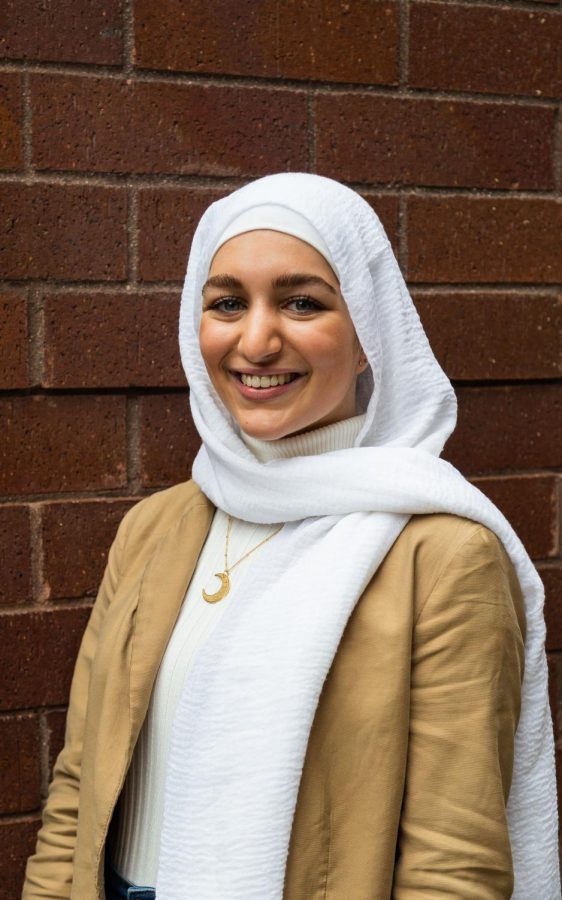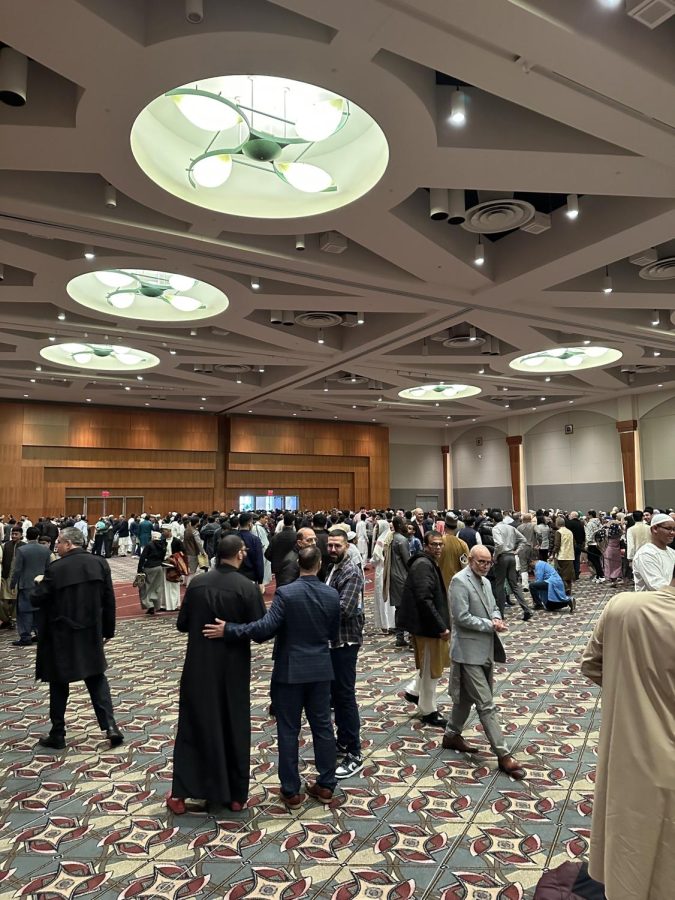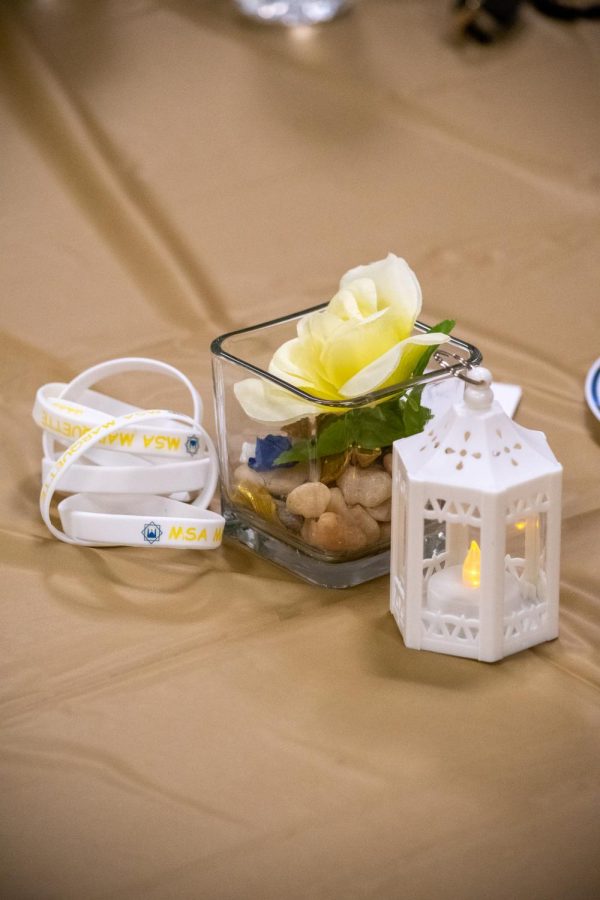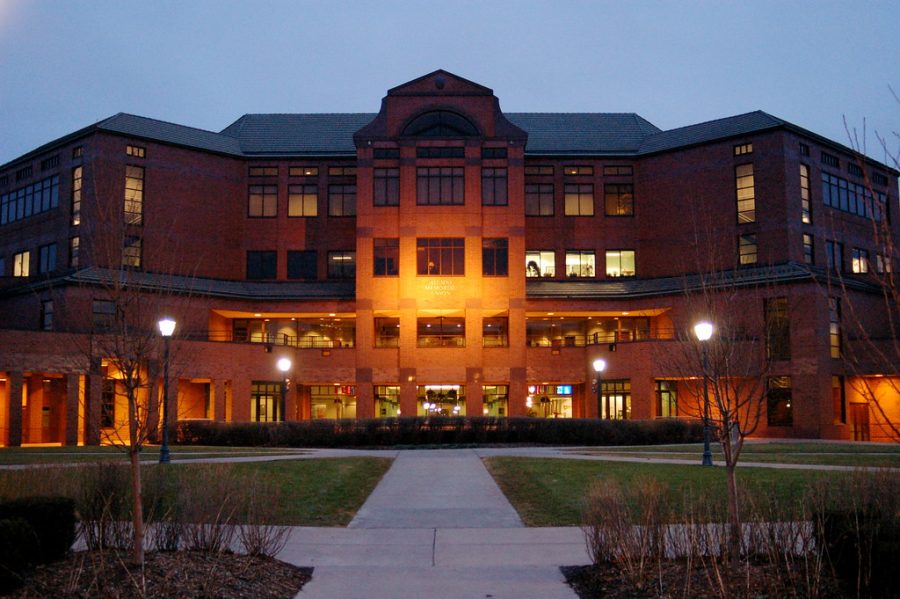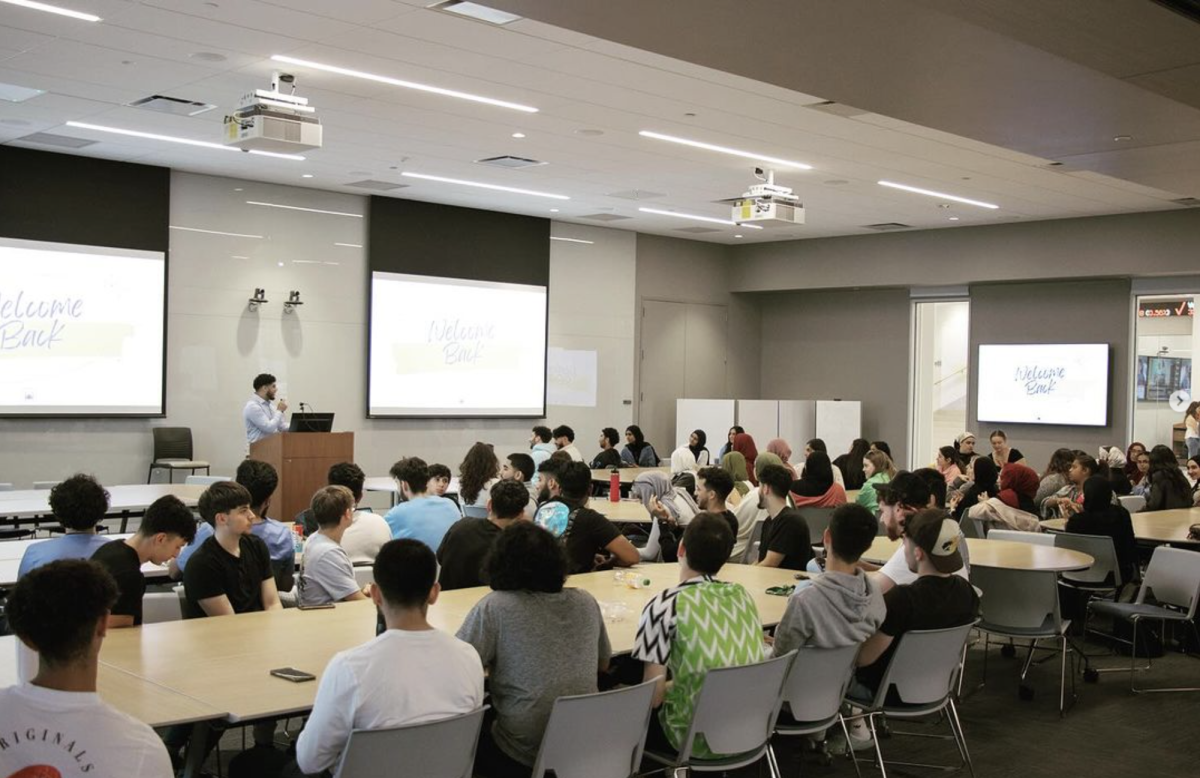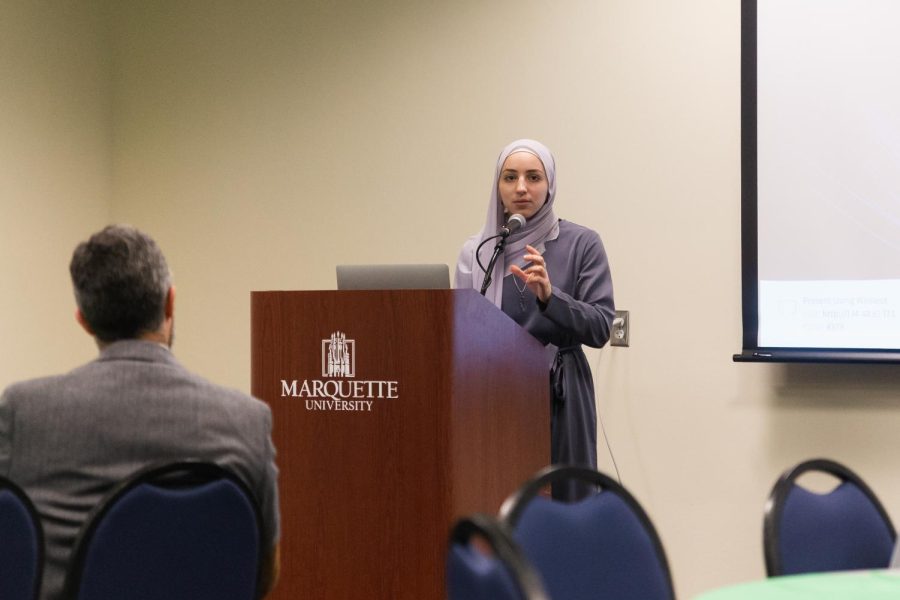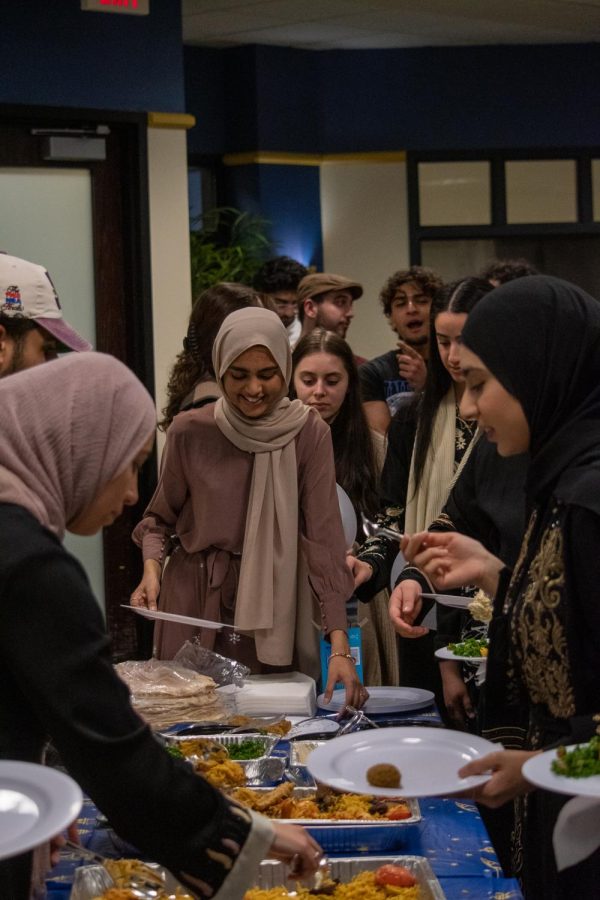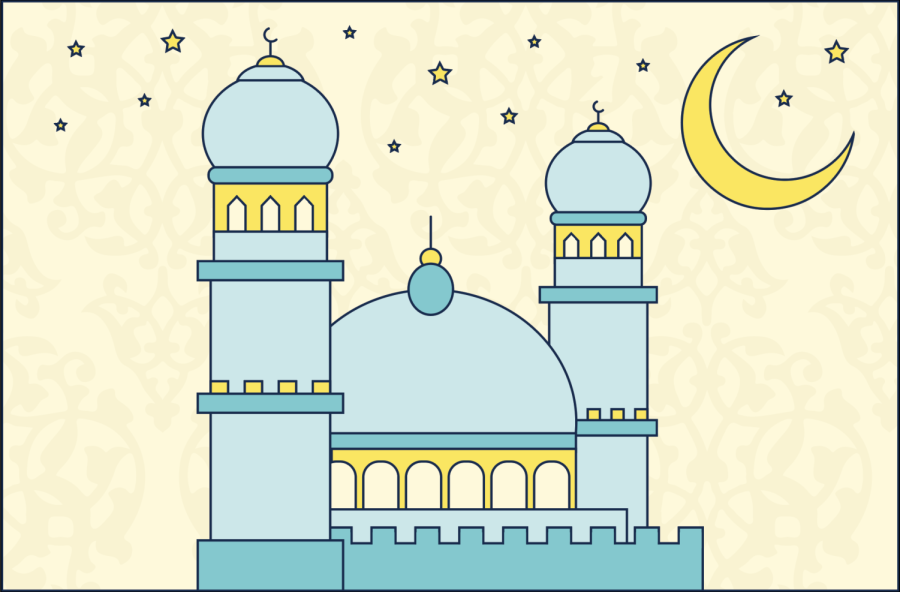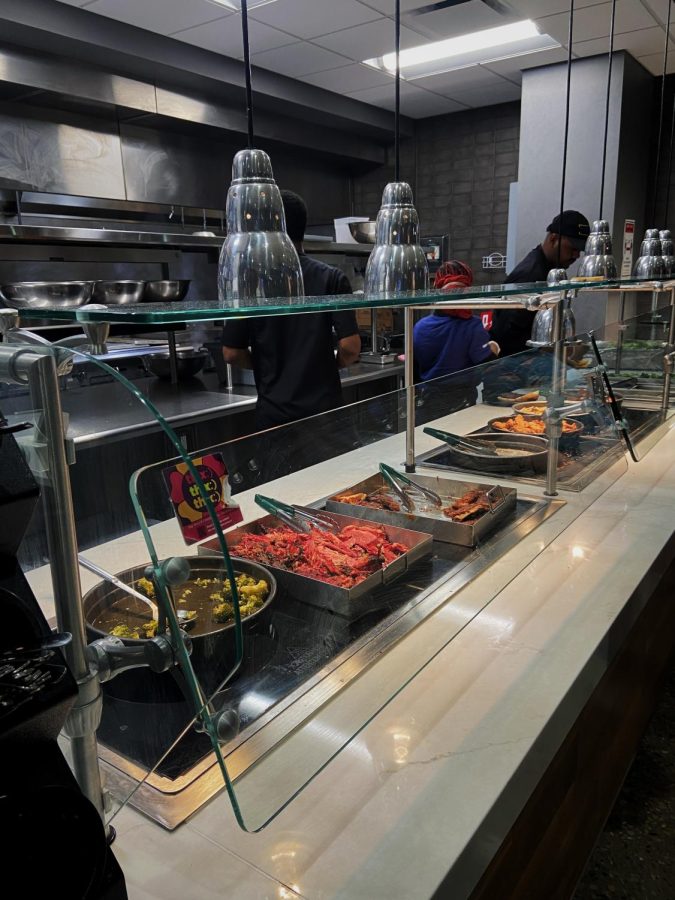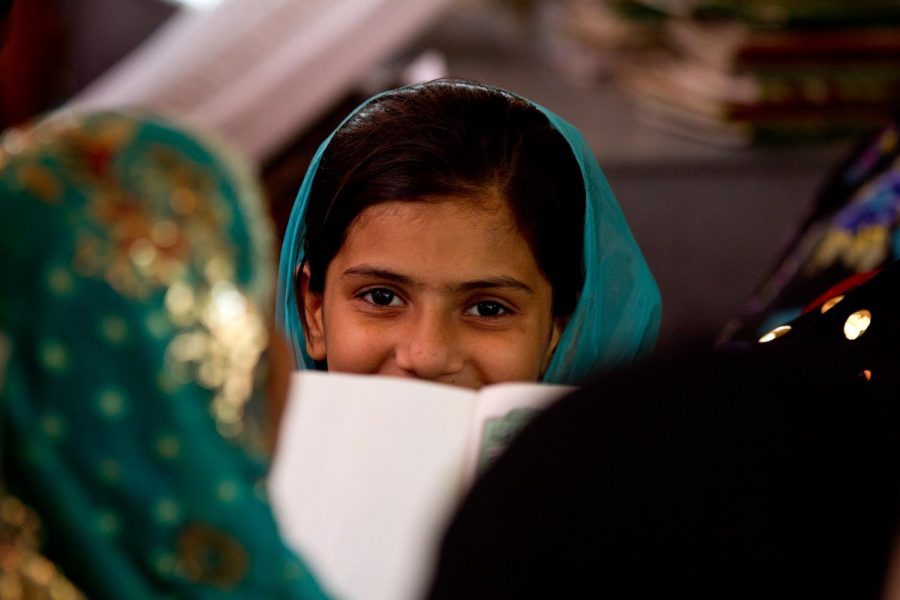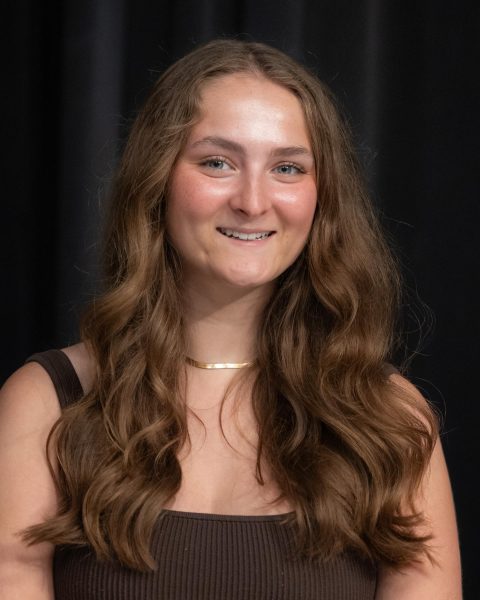“Ramadan Mubarak,” is an Arabic phrase said during the ninth holy month of Islam to wish other Muslims a blessed Ramadan. Students at Marquette are doing the same during the months of April into early May.
The ninth new moon in the Islamic calendar symbolizes the holy month of Ramadan.
Ramadan is a religious holiday celebrated by Muslims.
Fasting during Ramadan is one of the five pillars of Islam along with profession of faith, prayer, alms and pilgrimage.
This year, Ramadan started April 2 and will end May 2.
After the crescent moon appears in Saudi Arabia following the new moon, Ramadan begins. This causes the dates for Ramadan to be different each year. The Saudi Arabia moon committee announces the start of Ramadan each year.
At Marquette University, Campus Ministry held a dinner April 11 for those celebrating Ramadan to gather and eat a meal together. When Muslims break their fast after sunset, it’s called iftar.
Suhoor is the meal Muslims eat before sunrise during Ramadan, prior to beginning their fast for the day.
Fasting for Ramadan takes place from sunrise to sunset, Muslims cannot eat food, drink, smoke or participate in sexual relations. The practice is intended to target spirituality and charity.
“I celebrate Ramadan by fasting throughout the day and then breaking my fast once the sunsets,” Dana Sharqawi, a junior in the College of Arts & Sciences and president of the Muslim Student Association, said in an email.
Some Muslims do not participate in fasting during Ramadan for personal reasons. Additionally, if someone is pregnant, nursing, menstruating or ill, they do not need to fast.
Some Muslims also spend extra time during Ramadan reading the Qur’an and fulfilling special prayers.
“This is my first year celebrating Ramadan on campus,” Sharqawi said in an email. “Campus ministry has definitely made the attempt to host the Muslim students here.”
Sharqawi said her favorite part about Ramadan is the tightness of the community among Muslims who are fasting. She said she enjoys going home and breaking her fast with her family and attending the mosque at night to pray with her community.
“There is something about this month that just makes everyone so much happier, which is why we all look forward to it every year,” Sharqawi said in an email.
Also celebrating Ramadan on campus, Eman Khatib, a senior in the College of Health Sciences and sisters coordinator for MSA, said last year the holiday fell during finals week which made it difficult for her to find time to balance schoolwork, time with herself and time with her family.
Last year, Ramadan began April 12 and ended May 12. Finals for Marquette last year occurred May 10 through 15.
Khatib said Ramadan is a month for forgiveness and reflection and she also said she can focus on self-growth and become closer to God.
Muslims believe that God specified himself as Allah in Arabic.
“Waking up before the sun rises is most certainly not easy, especially with staying up late studying and worshipping,” Khatib said in an email. “For me, this is a moment to contemplate and be grateful to Allah for everything we have since once the sun rises, I will no longer be able to enjoy the abundance of food in my kitchen.”
Saad Khawari, a senior in the College of Health Sciences and religious affairs e-board member for MSA, said Ramadan, in addition to fasting during the day, is a month where people rid themselves of bad habits.
“I also love how there is this sense community though having dinners and praying together, It creates this amazing atmosphere,” Khawari said in an email.
Some Muslim students believe the university could do more to bring awareness to Ramadan and support students through the holiday.
Khawari said it would be nice for Marquette to include Ramadan or Eid-ul-Fitr on its events calendar.
Eid al-Fitr symbolizes the end of Ramadan, the tenth month of the Islamic calendar.
Muslims celebrate everything they accomplished throughout Ramadan at Eid al-Fitr, otherwise known as “the Festival of Breaking the Fast.” During this time Muslims do special morning prayers, address each other with formal embraces, and greet each other with “Eid Mubarak” or “have a blessed Eid.” They also often gather with loved ones and have special meals.
Agreeing with Khawari, Khatib said although Muslim students are a minority at Marquette, she believes they should be recognized more and Muslim holidays/events should be put on the calendar.
Muslim students make up approximately one percent of the student body at Marquette.
“Last year, I had to take two finals during Eid,” Khatib said in an email. “And one of the professors was unable to accommodate me, so I had to spend three hours taking a final on the one day of the year when I should be celebrating and spending time with my family.”
The Muslim Student Association on campus plans events for students to participate in. Currently, they have a four series “Ramadan Refuge” event where MSA will have activities, discussions, reflections, team building and more.
“If any Muslim on campus who (is) fasting and does not have anyone to break their fast with, you are more than welcomed to reach out,” Sharqawi said in an email. “You have a community of people here who would be more than happy to have iftar with you or provide you with a dinner if you need!”
Connor Baldwin contributed to this report.
This story was written by Julia Abuzzahab. She can be reached at julianna.abuzzahab@marquette.edu


